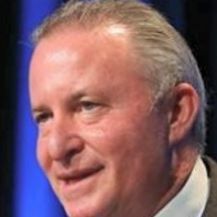
News

From a Midlands farm to top editorships in Israel
NICOLA MILTZ
The energetic Steve’s fertile imagination was given space to soar as he roamed his parent’s “dreamlike” 283-hectare farm near Ixopo, called Qunu Falls, during school holidays and over long weekends.
It was here under the beating African sun where the writer seeds were sown. But never in his wildest dreams did he even remotely think he would one day become one of Israel’s best regarded print journalists. He certainly didn’t dream of being editor of the internationally prestigious Jerusalem Post and then moving on to edit the bi-monthly Jerusalem Report, arguably Israel’s most prestigious news magazine in English.
And little did he know then that he would find himself in the esteemed company of some of the world’s most famous and influential people – the likes of whom many people only daydream about.
From the inspiring Holocaust survivor, Elie Wiesel and the Dalai Lama, to Israeli Prime Minister Benjamin Netanyahu, and (then) US Vice-President Joe Biden.
Linde has interviewed, written about and shared the same stage with well-known jurists Alan Dershowitz and Irwin Cotler, internationally renowned Rabbi Jonathan Sacks and South Africa’s own Chief Rabbi Warren Goldstein.
He has conversed with photographer David Rubinger, interacted with sex therapist Dr Ruth, and talked to Hannah Pick (Anne Frank’s friend who lives in Jerusalem) and interviewed two of his all-time favourite Israeli singers, David Broza and Rita – to name but a few.
By all accounts an interesting life far removed from his early days as a learner at Sharona Primary School and Carmel College.
“I had a wonderful childhood. We lived in a beautiful house which had a big garden, a soccer field and a swimming pool,” he recalls, “It was only in my later years of school that I discovered the evils of apartheid and how my privileged youth was hardly typical of the average South African,” he said this week from his Jerusalem office.
Linde studied journalism and sociology at Rhodes University in Grahamstown and then did a graduate degree in sociology at the University of KwaZulu-Natal under Prof Fatima Meer, focusing on Ghandi, and then a master’s in journalism at the University of California at Berkeley.
During his journalism studies in South Africa, he worked for a number of media outlets, from the SABC, to The Daily News in Durban.
He made aliyah in 1988 after spending five years in the US, where he taught junior high for a while. He immediately enlisted into the IDF, where he was put in the Artillery Corps. After his stint in the IDF he joined Israel Radio English News Department, which was run by former South African Zvi Pantanowitz. He worked as a radio broadcaster for 21 years, a time he “really enjoyed”.
“I’ve always wanted to be a writer and I’m a news addict,” he confessed.
While he was working at Israel Radio, he was approached by the Jerusalem Post to work as a night editor there, and that’s when his “love affair with print journalism flourished”, he said.
He landed up working for The Post for 20 years, five years as its editor-in-chief.
During his editorship, the newspaper launched an annual conference in New York for its American readership, and an annual conference in Jerusalem for the diplomatic community posted in Israel.
“The highlights of my career were interviewing President Shimon Peres on stage at the local diplomatic conference, and actor Michael Douglas on stage at the conference in New York.
“The most meaningful stories I covered under my editorship were the release of Gilad Shalit by Hamas and Jonathan Pollard in the US, even though I am still waiting for him to be able to come to Israel.”
The challenges he has faced as editor-in-chief of an Israeli daily newspaper, have been varied and seemingly unending. ‘There have been many challenges from law suits, budget cuts, and reader complaints, to ensuring that our coverage was fair, balanced and truthful.”
When asked how he thought the challenges of being a journalist in South Africa compared with the challenges of being a journalist in Israel he said: “I think the challenges are different in each country. Both countries have bad images, but in both, the media are relatively free, independent and diverse.
“I think the primary challenge working in both countries is to maintain our independence in the media, and ensure that our reporting is as fair, balanced and truthful as we can make it.”
As far as challenges moving forward are concerned he says: “The magazine world doesn’t have the same stress as daily journalism, and I’m looking forward to publishing a magazine with good stories and quality writing that provides context, which is such an important part of reporting, especially when it comes to Israel, the Middle East and the Jewish world, which are the focus of The Jerusalem Report.”
The coming years for journalists in Israel will be “tough ones”, but there will always be a place and hopefully a job for good journalists in the society, he said.
“We are, after all, the People of the Book, and if we don’t cherish the written word, who will?”
In his first letter to the readers of The Jerusalem Report in the upcoming edition, Linde recounts how Elie Wiesel once quipped that G-d created people because “He likes a good story”.
“Good stories are the foundation of good journalism. The story of Israel and the Jewish people is a great one… context is key, and that’s why history, culture and the situation in the Middle East are all vital elements of the story.”
The SA Jewish Report looks forward to reading some of these stories. In the meantime, there is a lot Linde misses about South Africa – “mostly family and friends, but also the people, the culture and the beauty of the country… and, of course, things like biltong, sour figs and gooseberry jam”.





Yocheved
June 10, 2017 at 6:14 pm
‘Well done boy!’